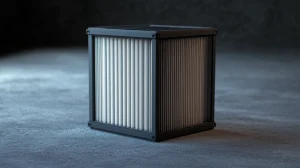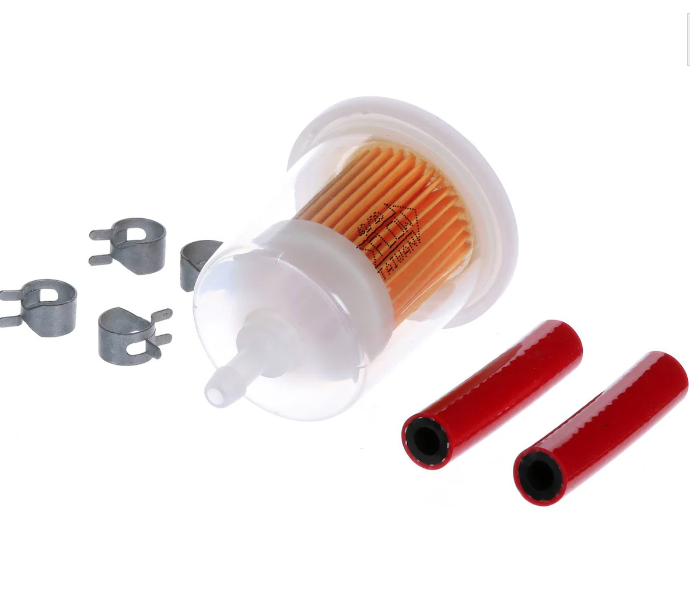
MicroGard Fuel Filter – 33001
- Height: 3.48 inch
- O.D.: 1.826 inch
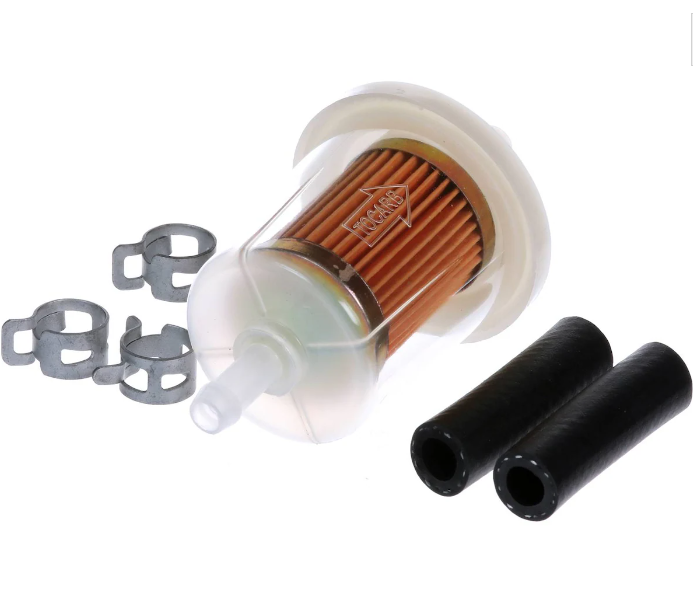
MicroGard Fuel Filter – 33002
- Height: 3.92 inch
- O.D.: 1.77 inch
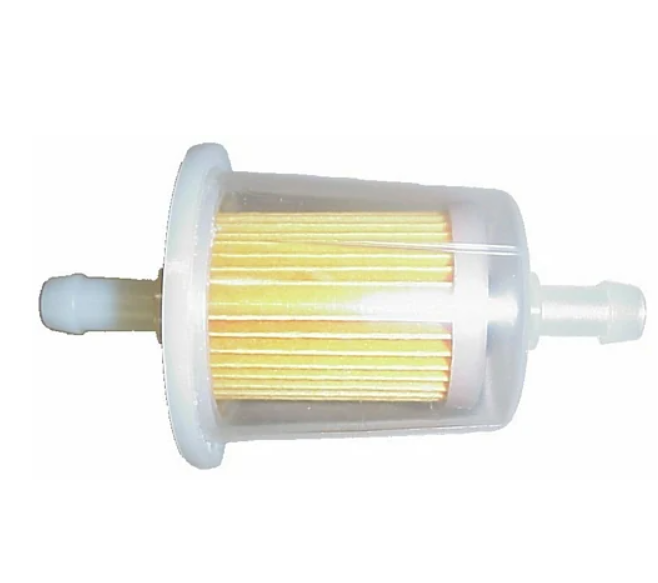
MicroGard Fuel Filter – 33003
- Height: 3.543 inch
- O.D.: 1.826 inch

MicroGard Fuel Filter – 33006
- Height: 4.18 inch
- O.D.: 1.38 inch
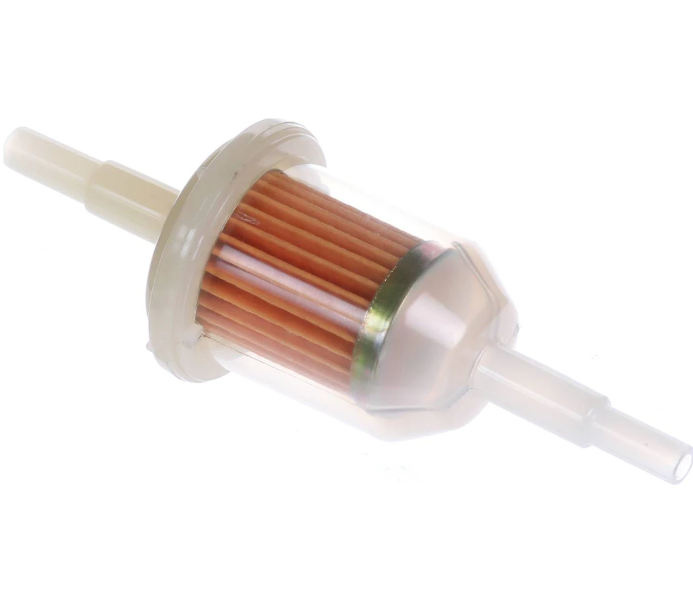
MicroGard Fuel Filter – 33011
- Height: 4.125 inch
- O.D.: 1.4 inch
Finding the right fuel filter for your vehicle is extremely important to keep your engine running smoothly. Microgard fuel filters are one of the top options to consider for superior engine protection. This comprehensive buying guide will provide everything you need to know about Microgard fuel filters to determine if they are the best choice for your needs.
What is a Microgard Fuel Filter?
A Microgard fuel filter is a high-quality fuel filter designed to remove contaminants and impurities from fuel before it enters the engine. Microgard uses advanced filtration technology with multiple layers of synthetic/cellulose filter media to block even the smallest particles. This prevents degraded fuel from causing damage to injectors, piston rings, and other critical engine components. Microgard fuel filters are manufactured to OE specifications for proper fit and performance.
How Does a Microgard Fuel Filter Work?
Microgard fuel filters utilize a multi-layer filtration system to thoroughly clean fuel of contaminants. Here is an overview of how they work:
- Fuel enters the filter through an inlet port and passes through the outer synthetic filter layer. This first stage blocks large particles and debris.
- The fuel then moves through the inner cellulose layer, which traps extremely tiny contaminants down to 4 microns.
- Clean, filtered fuel exits the unit through the outlet port to continue on to the engine.
- Harmful debris and dirt are trapped within the filter, preventing them from damaging injectors, pistons, valves and more.
This multi-stage design is highly effective at removing virtually all contaminants from the fuel for the best engine protection.
Where Can I Buy a Microgard Fuel Filter?
Microgard fuel filters are sold at many major auto parts stores such as:
- AutoZone
- O’Reilly Auto Parts
- Advance Auto Parts
- Pep Boys
- NAPA Auto Parts
You can also purchase Microgard filters from online retailers like Amazon or directly through the Microgard website. Be sure to use your vehicle make, model, and year to find the right Microgard filter for your specific vehicle.
How Often Should I Replace a Microgard Fuel Filter?
Most manufacturers recommend replacing your fuel filter every 10,000 – 15,000 miles or once a year, whichever comes first. However, if you drive in dusty conditions or have an older vehicle, more frequent replacement may be needed.
Watch for signs like reduced engine power, hard starting, rough idling, or decreased fuel economy to indicate a clogged filter that needs changing. Microgard filters are designed for a long service life, but regular replacement is key to protecting your engine.
What are the Benefits of a Microgard Fuel Filter?
There are many excellent benefits to choosing Microgard fuel filters:
- Superior Filtration – Microgard’s multi-layer synthetic and cellulose filter media traps more contaminants for cleaner fuel.
- Prevents Engine Wear – Keeping impurities out minimizes wear and damage to injectors, pistons, valves and other critical components.
- Improves Performance – Cleaner fuel allows your engine to run smoother and more efficiently.
- Easy Installation – Designed to directly replace OE filters for quick, simple installs.
- Long Life – Microgard filters are built to last 10,000+ miles for fewer replacements.
- Precision Engineering – Manufactured to strict OE specifications for proper fit and function.
Is a Microgard Fuel Filter Easy to Install?
Microgard fuel filters are designed for quick, easy installation right in your own garage. Here are some tips for DIY filter replacement:
- Raise vehicle and locate filter. It’s often found along the fuel line under the car.
- Position a drain pan to catch fuel and use pliers to loosen clamps holding hoses to the old filter.
- Disconnect fuel lines and remove old filter. Capture any excess fuel from lines/filter.
- Check new Microgard filter to ensure direction of fuel flow. Connect fuel lines to proper ports.
- Tighten clamps securely and lower vehicle. Start engine to check for leaks.
The entire process usually takes 15-20 minutes. With simple hand tools and proper precautions, Microgard filters can be changed easily at home.
Does a Microgard Fuel Filter Fit My Vehicle?
Microgard offers fuel filters engineered to replace OE filters on a wide range of domestic and import makes and models. To find the right one:
- Check owner’s manual for OE part number needed.
- Use online catalog to match OE number to appropriate Microgard filter.
- Enter vehicle information on Microgard’s website to find compatible filters.
- Consult local auto parts store for assistance in selecting proper filter.
As long as you match the Microgard filter to your vehicle using OE part numbers, you can be certain it will directly replace your factory filter.
How Do I Install a Microgard Fuel Filter?
Installing a Microgard filter is straightforward with some basic steps:
- Raise and support vehicle safely. Fuel filter is usually found along fuel line underneath.
- Locate old filter and use drain pan to catch any fuel that may spill out when disconnected.
- Use pliers to loosen clamps securing fuel hoses to old filter. Detach hoses.
- Remove old filter and clean any fuel residue from connection points.
- Check flow direction marked on new Microgard filter. Attach fuel lines properly to inlet and outlet.
- Secure clamps tightly over fuel line connections.
- Lower vehicle, start engine, and check for leaks. Add fuel if needed.
- Allow engine to run briefly to fill new filter and cycle filtered fuel through system.
With the right safety measures, this process can be completed easily in under 30 minutes.
What Makes Microgard Fuel Filters Different from Others?
There are a few key advantages that set Microgard fuel filters apart:
- Multi-Layer Media – Most use only one filter layer, while Microgard combines cellulose and synthetic to trap more contaminants.
- Precision Fit – Engineered to factory filter specifications for proper installation and performance.
- Extended Service Life – Lasts up to 2-3 times longer than standard filters between replacements.
- Micron Rating – Microgard filters down to 4 microns, smaller than many competitor filters.
- Premium Construction – Heavy duty materials withstand fuel system pressures and operating conditions.
- Warranty – Protected by an 18-month limited warranty for peace of mind.
The combination of advanced design, durability, and micron rating makes Microgard a top-tier fuel filter choice.
How Effective is a Microgard Fuel Filter at Removing Impurities?
With their multi-layer filter media, Microgard fuel filters are highly proficient at removing contaminants from fuel. Here are some key stats:
- Captures Particles Down to 4 Microns – Traps even tiny debris and dirt particles that standard filters may miss.
- 98% Efficiency Rating – Significantly exceeds the filtration performance of most competitors.
- 10+ Grams Dirt Holding Capacity – Robust construction handles plenty of trapped debris before needing replacement.
- Prevents Up to 100% of Harmful Contaminant Particles from Entering Engine – Keeps entire fuel system running clean.
Independent testing shows Microgard filters consistently deliver over 98% efficiency for protecting engines from abrasive particles and soot.
What Materials are Used in a Microgard Fuel Filter?
Microgard constructs their fuel filters using heavy duty materials designed to handle fuel system demands:
- Housings – Made from stamped steel for durability to withstand vibration, pressure and debris.
- Filter Media – Combination of cellulose fibers and synthetic material traps wide range of contaminants.
- Seals – Fluorocarbon seals maintain integrity of filter to prevent leaks and damage.
- Center Tubes – Perforated metal center tubes support filter media while allowing full fuel flow.
- End Caps – Robust nylon or metal caps secure filter element firmly in place.
Premium construction with reinforced materials allows Microgard filters to deliver long-lasting filtration performance.
How Do I Know if My Microgard Fuel Filter Needs Replacing?
Watch for these signs that your Microgard filter may be clogged and in need of replacement:
- Difficult starts or stalling after starting
- Increased cranking time before engine starts
- Rough idle, misfires, or surging
- Reduced power when accelerating
- Increased fuel consumption
- Black smoke from exhaust indicating rich fuel mixture
- Dirt or debris visible inside filter when inspected
Typically, Microgard filters should be replaced every 10,000-15,000 miles. But monitor your engine performance for signals to change filter sooner if needed.
Are There Any Discounts on Microgard Fuel Filters?
There are a few ways to save money on Microgard fuel filters:
- Buy in Bulk – Purchasing packs of 2+ filters yields a discounted per unit price at many retailers.
- Shop RepairPal – Special offers can give up to 30% off Microgard filters ordered through RepairPal services.
- DIY Installation – Save on labor by doing filter replacement yourself vs. shop service.
- Check Coupons – Print or download coupons for % off Microgard filters at retailers like Pep Boys.
- Join Rewards Program – Sign up for store loyalty programs to earn points towards future discounts.
- Buy Store Brand – Check for retailer branded filters meeting the same Microgard OE specs for lower cost.
With some smart shopping strategies, you can find great savings on Microgard fuel filters for your vehicle.
What are Customer Reviews for Microgard Fuel Filters?
Microgard fuel filters are highly regarded based on many positive customer reviews:
- “Super easy to install and made a noticeable difference in how smooth my older truck runs.”
- “I use Microgard filters in all my cars now. Great quality and engine protection.”
- “No more stalling out after this filter cleaned up my dirty gas.”
- “Microgard fuel economy is impressive. I gained almost 3 MPG after installing.”
- “My mechanic suggested this brand and I’m happy with how well it filters and the 18 month warranty.”
- “Works like a champ and so much cheaper than buying from the dealer.”
Outstanding filtration performance, improved fuel economy, and easy installation seem to be the most commonly praised benefits in Microgard reviews.
Do Microgard Fuel Filters Improve Engine Performance?
By providing contaminant-free fuel to the engine, Microgard filters can definitely enhance performance:
- Smoother Operation – Ultra clean fuel allows engine to run quieter and with less vibration.
- Increased Horsepower – More filterable fuel results in better combustion and power output.
- Improved Efficiency – Reduced internal engine friction improves fuel economy up to 3%.
- Faster Acceleration – Minimal resistance from clogged injectors allows better throttle response.
- Less Maintenance – Lower wear and cleaner operation extends time between tune-ups.
Drivers report noticeable gains in engine performance after installing a new Microgard fuel filter in their vehicle.
Are Microgard Fuel Filters Available Online?
Microgard fuel filters can be conveniently purchased online from:
- Amazon – Wide selection of Microgard filters eligible for Prime shipping.
- AutoZone – Order exactly the right filter for your vehicle with delivery or in-store pickup.
- NAPA Online – Have Microgard filters shipped directly to your home or local NAPA store.
- Pep Boys – Browse Microgard filters for your make/model and add to your cart.
- Microgard Direct – Purchase filters directly from manufacturer with discounts on some models.
Purchasing Microgard filters online makes finding the right one easy and delivers it right to your door.
How Do I Maintain a Microgard Fuel Filter?
Microgard filters don’t require much maintenance except:
- Regular Replacement – Swap filter every 10-15k miles for optimal performance.
- Inspect Hoses – Check fuel hoses for deterioration and replace if needed when servicing filter.
- Add Fuel Stabilizer – Stabilized fuel prevents deposits from building up in filter.
- Use Top Tier Gasoline – Higher quality fuel has more detergent to maintain clean filter operation.
- Fix Leaks – Repair any leaks upstream as they can allow dirt into the filter.
- Buy OEM – Use genuine Microgard filters to ensure proper fit and performance.
With high-quality fuel and scheduled filter changes, Microgard filters will deliver reliable filtration.
What is the Lifespan of a Microgard Fuel Filter?
Most Microgard fuel filters are designed to operate for 10,000-15,000 miles or 1 year under normal driving conditions before needing replacement. Factors impacting lifespan include:
- Mileage – Higher mileage shortens interval between required changes.
- Fuel Quality – Low quality gasoline causes faster buildup of filter-clogging debris.
- Driving Environment – Frequent dusty or dirty road use can plug filter faster.
- Fuel Contaminants – Issues like ethanol or algae reduce filter capacity quicker.
- Engine Problems – Faults like bad injectors or leaks add more contaminants to filter.
Follow recommended intervals for changing your Microgard, and monitor engine performance for any need to replace sooner.
Can a Microgard Fuel Filter Affect Fuel Efficiency?
Yes, a clean Microgard fuel filter can lead to increased MPG by:
- Removing Injector-Clogging Debris – Allows proper fuel atomization and cylinder filling.
- Letting Air Flow Freely – Clean filter has minimal intake resistance compared to clogged filter.
- Enabling Optimal Combustion – Ultra-filtered fuel burns more completely and efficiently.
- Preventing Engine Damage – Protection from debris reduces friction and wear that sap power.
- Lowering Vehicle Weight – Replacing heavy, dirt-loaded filter reduces pounds hauled around.
Drivers report 1-3 MPG or more in improved fuel economy after installing a new Microgard filter in their vehicle.
Are Microgard Fuel Filters Compatible with Diesel Engines?
Microgard offers a full line of fuel filters specifically designed for diesel engines, including:
- Heavy duty construction to handle higher pressures.
- Increased contaminant capacities for soot and debris.
- Water separating capability to protect diesel injection systems.
- Models for popular diesel applications like Ford Powerstroke and Cummins.
Be sure to find Microgard filters made for diesel engines by checking specifications and product descriptions before purchasing.
Conclusion
Microgard’s advanced multi-layer filtration makes them a premier fuel filter choice to protect your engine and improve performance. This detailed buying guide provides everything you need to select the right Microgard product for your vehicle’s needs and keep your fuel system operating in top condition. With cleaner running and reduced engine wear, Microgard fuel filters are a great investment for mileage-extending engine protection.


